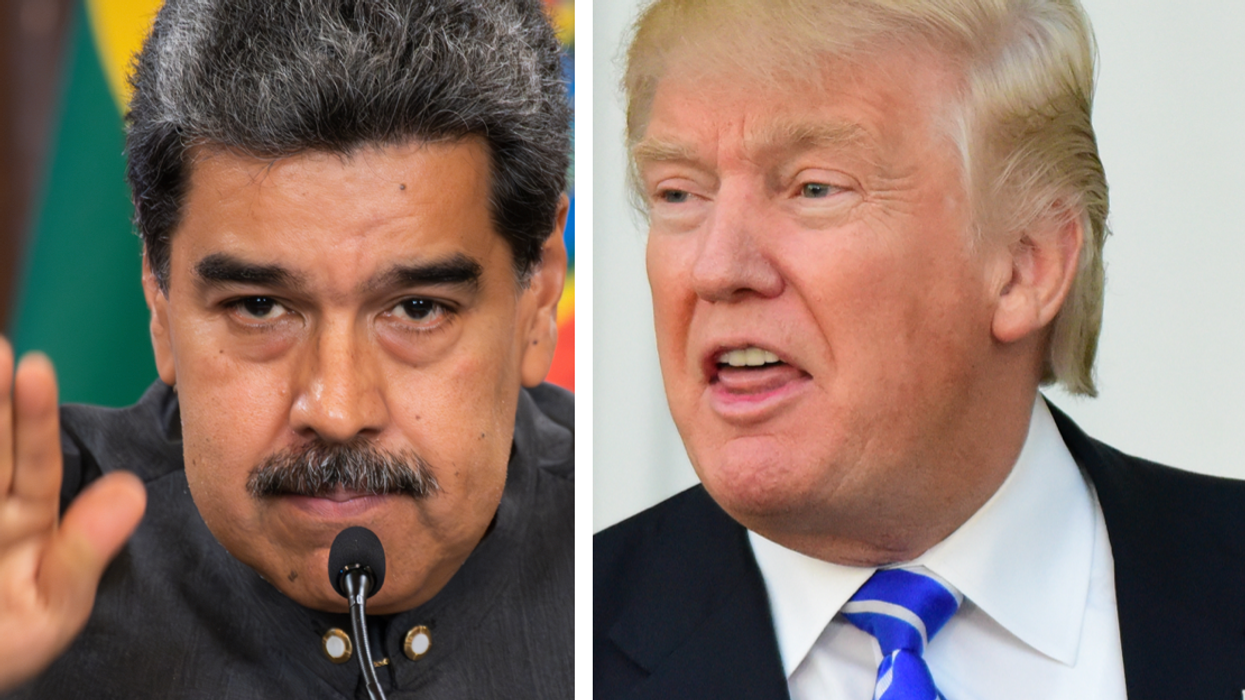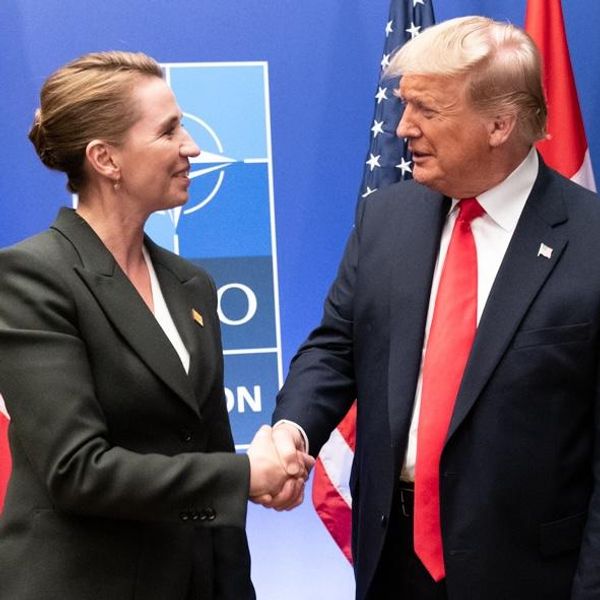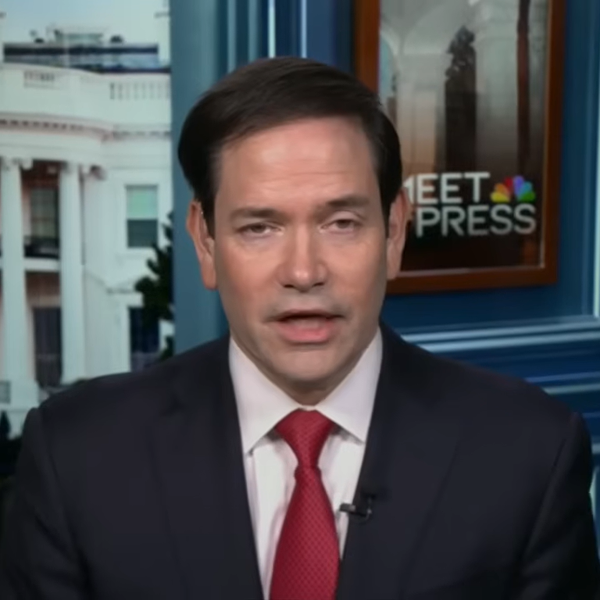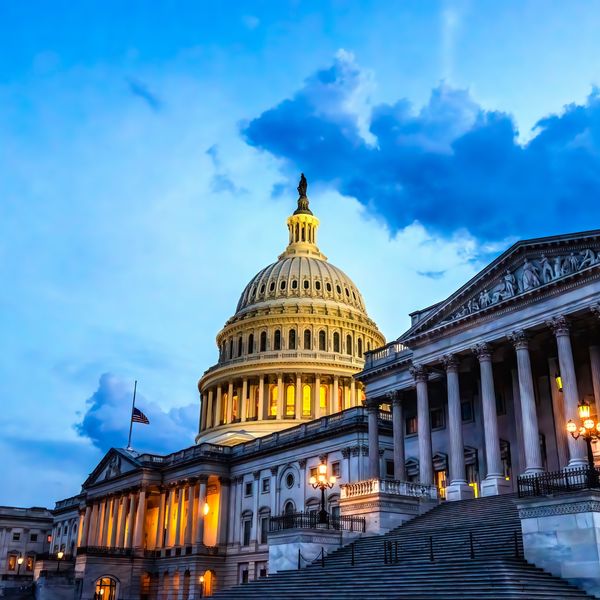When President Biden steps to the podium for his first State of the Union address Tuesday night, he will do so with three specters at his side — inflation, contagion, and war. For the first two he has had plenty of room to craft his messaging: times are hard, but the market added six million jobs in the last year and unemployment is down 4 percent. As for the COVID threat, it appears to be receding; the country now reopening after two years of social and economic lockdown.
But last week’s Russian invasion of Ukraine has forced the White House to rewrite large chunks of his annual address, and for good reason. For the first time in years (aside from a few weeks around the Afghanistan military withdrawal), COVID and our fraught domestic politics have been knocked off the top of the fold and replaced by a foreign policy concern.
So how will he frame this to his political advantage? According to the Washington Post, Biden will use this moment to define what is happening in Ukraine today “as a major crisis facing the West,” a fundamental inflection point in today’s global battlefield of “democracies vs. autocracies.”
This satisfies both his need to be seen as leading from the front — not behind — as well as following through with a promise to realign the international rules-based order, solidify NATO and U.S. democratic partners in Europe, and of course, be on the right side of history.
This is what Democrats want, and fellow travelers like Washington Post columnist Jennifer Rubin, who suggested Monday that he should re-organize the entire speech in favor of this new imperative.
“Biden needs a very different State of the Union. Instead of defending remarkable domestic progress, with foreign policy relegated to the back end of the speech, he needs to flip the order and build the speech around a historic moment when the United States is leading a worldwide coalition in defense of freedom. This is a time for public education.”
Michael Waldman, who helped write four of President Bill Clinton’s State of the Union addresses, told the paper he did not think Ukraine would be relegated to “point number five” in the speech because of the “magnitude of the visceral reaction to what’s going on." Plus, “Biden needs to rally the democrats — with a small ‘d’ — against the autocrats worldwide, and he cares a lot about that.”
Justin Logan, senior foreign policy fellow at the Cato Institute, told Responsible Statecraft that he believes Ukraine will indeed "suck the oxygen out of the foreign policy section of the speech” and will be very much informed by the growing Democratic narrative that the United States must join with the league of the world’s democracies to counter the rise of global authoritarianism (the administration has been singling out both Russia and China in this regard since the last SOTU). “Democrats, if anything more than Republicans, will want to hear hawkish things about Putin, whom they view not just as the cause of great suffering in other countries, but a source of their political distress at home.”
But is this what the American people watching really care about? Logan and others RS spoke with didn't think so. With prices soaring due to inflation and the instability of the markets in the wake of the Ukraine crisis (not to mention the newly imposed sanctions and potential backlash by Russia), most Americans are likely more concerned about paying the bills, grappling with higher food prices at the store, and getting their kids caught up after two years of COVID-interrupted education. Late February polling found six out of 10 Americans experiencing "inflation hardships," while in a survey in January, 68 percent of Americans said the economy was their top issue going into the 2022 midterm elections, far outpacing the pandemic.
Rubin’s argument would be that Biden should declare that “when we fortify democracy and defend our principles, we can lead a worldwide alliance. Democracy makes us free and makes us strong; it provides an anchor for international partners and economic prosperity.”
But outside the bubble, far from Rubin’s headspace, the high cost of ground meat and gas is the real "existential threat," as is paying off student loans and the mortgage when one’s pay check suddenly doesn’t stretch as far as it used to. The American public is tired. They are interested — even angry about Russia's actions in Ukraine — and certainly empathetic, but is there energy for rallying around the flag against another overseas adversary? Biden is likely asking himself that question too. His 37 percent approval rating has less to do with his management of autocrats than it does with the economy and COVID.
"It’s not just that Americans want to see the federal government tackle big problems at home," writes James Lindsey at the Council on Foreign Relations. "It’s that the steps needed to reverse Russia’s aggression could aggravate those problems and divert resources away from domestic priorities."
This, at its very core, would slam right into Biden's "foreign policy for the middle class," which was announced last February and left largely undefined in practical terms, since.
Biden knows war means sacrifice, and the American people are sacrificing a lot already. "I hope he reaffirms the fact that his administration does not intend to involve U.S. troops directly in the conflict," Dan Caldwell, senior advisor for Concerned Veterans of America, tells Responsible Statecraft. "This is especially important in light of the recent irresponsible push by some American policy makers like Rep. Adam Kinzinger to establish a no fly zone in Ukraine, which would inevitably lead to a direct military confrontation between the United States and a nuclear-armed Russia."
That is the last thing most Americans want, according to a recent CNN poll, which found that 58 percent are opposed to U.S. military action against Russia. Meanwhile, only 42 percent say they are moderately confident with Biden's handling of the situation.
It is clear that striking the balance on the dais Tuesday may mean ignoring advice from the Jen Rubin's of the world, which is typically a good idea in any case.
















